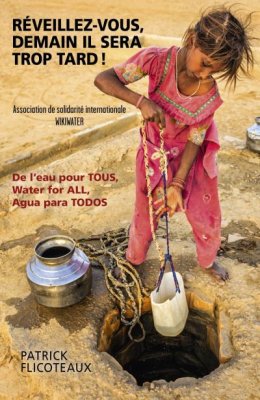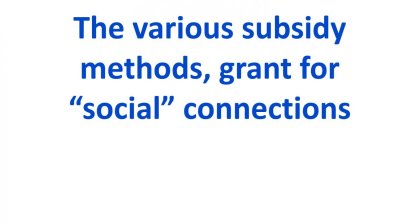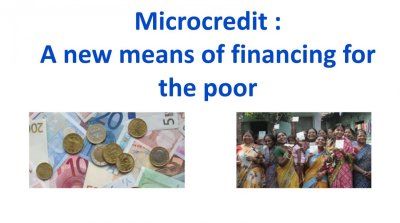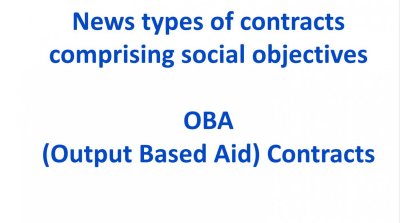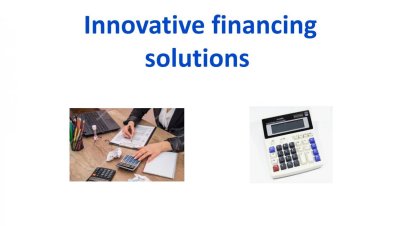1) What is involved ?
These are various systems that allow people that have very little income to either settle their debts pertaining to their water bills or to prevent such difficulties.
2) Who use this means and since when ?
These are substantially social services or solidarity NGOs, who have been doing this for a long time now, but also sometimes regions or States through the intermediary of specific Funds created for this purpose.
3) Why ?
Because these types of assistance are rather easy to set up and to adapt to the needs and also because they can be modulated and are more easily adaptable to the current situation and to the needs of the corresponding families.
4) Who is primarily concerned ? Places or contexts in which this means seems best suited
Towns that are not closed in on themselves of which certain inhabitants can no longer pay their water bills and which have sufficient resources to be able to grant such assistance.
5) What does this process involve ? How is it used ?
 These entail allocating financial assistance, optional, to certain low-income users that meet precise conditions, most often pertaining to income, in order to allow them to pay all, or most often a portion, of their bills, but also in certain cases, to contribute to their costs in connecting to a network, as these costs are often rather expensive.
These entail allocating financial assistance, optional, to certain low-income users that meet precise conditions, most often pertaining to income, in order to allow them to pay all, or most often a portion, of their bills, but also in certain cases, to contribute to their costs in connecting to a network, as these costs are often rather expensive.
Methods
The assistance, which is rarely allocated in the form of an advance or loan except in certain cases involving assistance concerning a connection, is most often granted in the form of a gift paid in cash or in the form of a cheque remitted either to the interested parties, or directly to the department in charge of collecting the bills.
Two types of assistance can often be distinguished.
The assistance can be :
- either (most often) of a curative nature, i.e. making it possible to settle the bills that the user cannot settle or is only able to pay a part. This is for example the case of many forms of assistance granted by the social services.
This can be granted by a simple decision of these departments or of a community, which most often in many countries has a social commission whose credits are voted by the municipal council or an NGO.
This assistance is also sometimes paid on a regional or national level, but much more rarely, through the intermediary of Special Funds (Example as we shall see further on : the FNL (National fund for housing assistance) in France, funded by contributions from local governments and private operators and which, after an examining the dossier, cover a portion of the water bills that cannot be paid).
 - or of a preventive nature, i.e. intended to prevent difficulties or impossibilities for payment of underprivileged families by paying to them on a regular basis, according to their level of income and the price of water, permanent assistance in order to reduce the weight of their bills.
- or of a preventive nature, i.e. intended to prevent difficulties or impossibilities for payment of underprivileged families by paying to them on a regular basis, according to their level of income and the price of water, permanent assistance in order to reduce the weight of their bills.
This generally requires setting up legal and regulatory systems that set down the particulars (for example a water budget exceeding a certain level such as 3% of the income) and in particular means for financing, those which can be either of a tax nature (then feeding into a specific solidarity Fund), or come from a low tax (usually hardly 1%) on the price of water.
It is this type of assistance which is increasingly recommended by NGOs and supported by certain elected officials who, while waiting for the vote of a law that would make it so that no citizen has to spend more than a certain percentage of his income (3% most often) on water, have taken measures that are inspired by this. This was for example the case in France in the City of Paris, those of the SEDIF in the Paris suburbs, Aix les Bains, Libourne and Niort (see further on in chapter 7) as well as Buenos Aires in Argentina and several cities in Venezuela, South Africa and Morocco.
Most often individual, this assistance is sometimes, but more rarely collective and is therefore most often used for creating hydraulic infrastructures intended to improve the facilities in the poor sections of town. This as such rather similar to grants, which most often are paid by the State, NGOs or international funding institutions.
Similar, but neither curative or preventive but also individualised, such is finally the case with assistance (of great interest) sometimes granted to people, in the form of reductions, loans or payment facilities, for the creation, as the cost is usually high, of a connection on a public network, then generally referred to as a "social hook-up".
This assistance is particularly useful and interesting as it allows the interested parties, not only to have convenient access to better-quality water, but afterwards to save a lot thanks to a much lower price for water when connected to a network.
6) Main advantages and drawbacks
 a) Main advantages
a) Main advantages
- Social assistance is often faster, more flexible and more easily adaptable to the situation of the people concerned.
- It can be modulated and can easily be revised according to the funds available.
- It makes it possible to quickly adjust temporary difficult situations and prevent them from getting worse.
- It can supplement certain pricing systems in order to make them more equitable and more targeted.
b) Main disadvantages
a) If it is of a curative nature
- Most often of an optional and individual nature and left to the appreciation of bodies or persons that grant it, which for the most part makes it depend on the location of residence or of the persons in question, this assistance is only temporary and has difficulty in allowing the poorest to get out of the situation in a sustainable manner.
- It requires personal approaches which may be considered as difficult to carry out and support.
b) If it is of a preventive nature
- The system is more interesting and better respects people’s dignity, but it is more difficult to define and set up. It requires legal or regulatory provisions and is not as easy to modify.
- The methods for allocation are often involved and complex, and the delays for obtaining them are longer.
- It requires the creation of substantial and perpetual funds and a more complicated management system.
7) Achievement examples
a) The FNL, National fund for housing assistance (France)
 Created through legislation in 1990 in order to help families with housing and in particular assist the underprivileged in handling their energy expenses, this national fund was mandated in 2004 to also contribute in settling water and sanitation debts that they also may have contracted in terms of water and sanitation.
Created through legislation in 1990 in order to help families with housing and in particular assist the underprivileged in handling their energy expenses, this national fund was mandated in 2004 to also contribute in settling water and sanitation debts that they also may have contracted in terms of water and sanitation.
Funded through voluntary contributions, from the General Councils of the départements, who are in charge of managing them, water distribution companies (through the bias of writing off receivables) and territorial governments, this Fund assisted in 2009 65,000 families from 73 départements (about twenty of them had not yet become part of the this system). The average amount of the subsidy paid is close to €150 (to be compared with the average annual expense for water in France of about €400).
Note : A new law in 2010 authorised the towns who desire to also contribute to this Fund by levying a contribution of 0.5% on water bills.
Advantages
This fund makes it possible to handle difficult situations. Filing a request makes it impossible to cut off the water while waiting for the dossier to be settled.
Disadvantages
This assistance is only curative and partial, in terms of the amount and in terms of the number of households assisted. The number of families with modest incomes and equipped with a meter is in fact estimated in France to be about 475,000.
This is a national fund but in fact it is managed locally by the départements. It requires, before it can be operational, the signing of an agreement beforehand, signed at the level of the département, of the three categories of contributors (however, not all have done this yet).
b) The example of the City of Paris
 The City of Paris created with its own funding several interesting and supplemental systems for assisting the most underprivileged people :
The City of Paris created with its own funding several interesting and supplemental systems for assisting the most underprivileged people :
- the first consists in paying, in a curative manner, an annual contribution of €500,000 to the National fund for housing assistance, which will make it possible for its 41,000 beneficiaries to collect an average amount of assistance of about €70/year.
- the second provide for the payment, in terms of preventive assistance, an annual allocation of €80 per household (41,000 in 2010), which represents about a quarter of the bill.
- the third, also of a preventive nature, results in the distribution of 15,000 water saving kits in housing of a social nature, with the foreseeable savings in water at about 15%.
- the fourth made it possible to equip the city with 1,142 water outlets and 351 free public toilets for the homeless, and the map showing where they are located was largely distributed by the intermediary of the town halls or associations.
- the purpose of the last one, in the framework of decentralised and international cooperation, if to finance programmes with regards to access to drinking water and sanitation in developing countries (€1.2 million)
c) Other examples
- In the Paris suburbs, the SEDIF (Ile-de-France Regional Water Authority) has set up three systems of assistance :
- one in the form of a specific voluntary contribution to the FSL
- the other in the form of "water cheques" remitted by the intermediary of the CCAS (Community Commissions on social assistance) of the towns that are members of the Authority, thanks to a specific allowance of €1 million/year (=0.5% of the income) from its Delegatee Veolia Eau negotiated during the last renewal of the contract of delegation.
- the last one, by subsidising decentralised cooperation programmes, in the framework of a law inspired by its President (law referred to as 1% Oudin-Santini) which starting in 2005 authorises communities or their Water Authorities to levy 1% on the price per m3 for this purpose in order to finance such operations. (Amount : over €2 millions/year corresponding to the maximum levy of 1%).
These programmes are supplemented by a specific assistance system in the case of joint-ownership buildings in great difficulty and for prevention through awareness, via specialised teams, low-income households with eco-gestures and with good consumption practices.
- In Aix les Bains (Savoy), the city created a Water Solidarity Fund in favour of the most underprivileged funded by a tax of one centime/m3.
- In Libourne (Gironde) as in Niort (Deux-Sèvres), the Fund created is supplied by a 1% tax on the price per m3.
- In most cities, a specific Water Fund has not been created, but it is the CCAS (Community Commissions on social assistance) who pay the assistance when it is not covered by the FSL
- Note finally that we are increasingly seeing, which furthermore seems to be a good formula, that these measures of solidarity or these Funds are created at the end of or during the renegotiating of contracts concerning the delegation between a city and its delegated company.
8) Where to obtain further information - Bibliography
 - Coalition Eau : "8 proposals for elected officials". Brochure created by this Platform of 25 French associations active in the field of water and sanitation after the latest municipal elections and which suggests 8 very concrete paths for reflection and action in this area for towns.
- Coalition Eau : "8 proposals for elected officials". Brochure created by this Platform of 25 French associations active in the field of water and sanitation after the latest municipal elections and which suggests 8 very concrete paths for reflection and action in this area for towns.
Available online on :http://www.coalition-eau.org/publication/candidats-engagez-vous-pour-faire-de-lacces-a-leau-une-realite-pour-tous/
- Revue L’eau and l’industrie. A 3-page article by Henri SMETS "Implementing the right to water in PARIS" indicating the various measures of solidarity taken by the City of Paris
http://www2.ohchr.org/english/issue...



